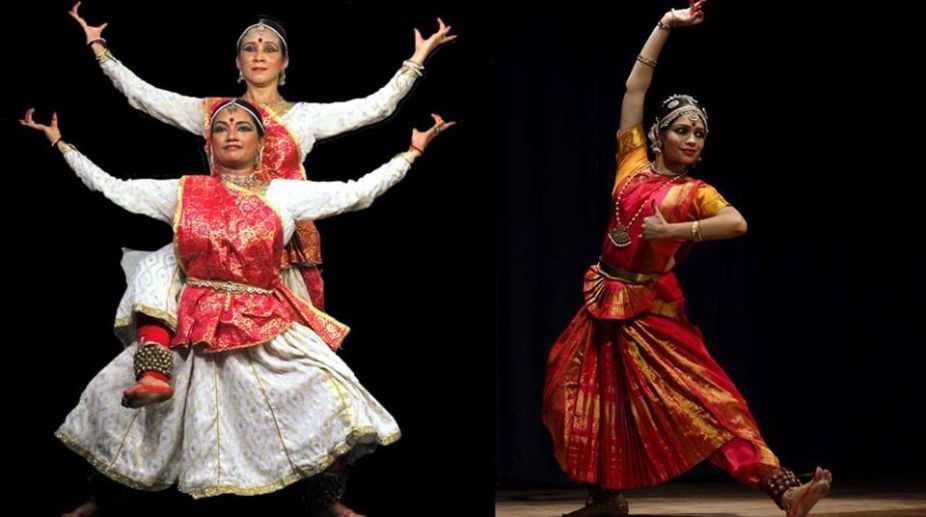The search for intellectuals
It’s true that in the past few years, with the absolute corporatisation of the media and the advent of the media-savvy politician, ‘non-pliant’ editors and media professionals have been replaced by pliant ones.

(Photo: Facebook)
With an aim to encourage young talents, the India International Centre (IIC) has devised a few annual events like the Spring, Summer and Monsoon Festivals to showcase young musicians and dancers on a regular basis. Their annual dance festival, Varsha Ritu, presented solo and duet performances in Kathak, Bharatanatyam, Odissi and Kuchipudi styles on two subsequent evenings at the IIC Auditorium last week.
The festival opened with a Kathak duet by Leena Malakar Vij and Purnima Roy Chaudhury, both disciples of Guru Nandini Singh of Jaipur Gharana. Born in Kathmandu, Leena came to India on a scholarship by the Indian Council of Cultural Relations (ICCR) to learn Kathak.
Advertisement
She was groomed into a promising Kathak dancer under Guru Nandini Singh, who has not only performed at many prestigious dance festivals but is teaching Kathak at her own school Kathik. Purnima is a senior discriple of Guru Nandini Singh, who has performed main roles in many dance dramas of Shriram Bhartiya Kala Kendra (SBKK), and is hence a known face.
Advertisement
A recipient of National Scholarship by the Union ministry of culture, she is also an empanelled artiste of the ICCR. Opening their duet with the Ganesh Vandana "Pratham sumir Shri Ganesh…", interspersed with the Ganesh Paran et al, they performed the traditional Thaat, Aamad, Tode Tukde, Paran and Chakkardar in Teentala with utmost precision.
The "Ardha-Nareeshwar" and the Megh-Malhar compositions, choreographed by themselves, saw their Abhinay provess too. The lovely Megh-Malhar bandish "Ghan Chhaye gagan ghan ghor ghor…", composed by Pt Jnan Prakash Ghosh, and competently delivered by Shoaib Hasan, depicted the ambience of Varsha Ritu, the rainy season, both in music and dance.
Their impressive performance that concluded with the Bageshri Tarana set to Jhap-tala was enhanced by the live musical support, where Babar Latif Khan on Tabla, Shoaib Hasan on vocal, Akram Hussain on Sarangi and Apala Verma on Padhant provided commendable accompaniment. Bharatanatyam Solo by Priya Srinivasan, was the other attraction of the inaugural evening.
An alumni of Kalakshetra, Priya has the unmistakable Kalakshetra stamp, including the "Anga-Shuddhi" with perfect lines and Araimandi to her inherent sense of rhythm and feel for Abhinaya. All this with her attractive stage presence, won repeated applause from the audience right from the opening Vandana to concluding Tillana.
The live orchestra also enhanced her impeccable Bharatanatyam.
Varsha Ritu, the two-day dance festival, concluded with the charismatic Kuchipudi recitals by Ranjini Nair and Moutushi Majumdar, both trained under Guru Jayarama Rao and Guru Vanashree Rao.
The Kuchipudi dance presentation opened with an invocatory duet by both the talented dancers interpreting the famous raga Hindolam composition by Papanasam Sivam, "Hari-Hara Marumanam Umaramanam…", set to Rupaktalam. The well-conceived number was choreographed by Guru Vanashree Rao, who was also doing the Nattuvangam.
The next number depicted the Varsha Ritu on Meera Bhajan "Barse badariya Sawan ki…", composed in raga Megh Malhar and set to Adi-Tala. This and Jayadeva's Ashtapadi came as solo pieces by each one of the dancers before they concluded with "Dashavataram", a captivating duet, which was originally choreographed by Guru Vempati Chinna Satyam specially for Vanashree and Jayarama Rao a few decades ago.
The live orchestra comprised Nattuvangam by Guru Vanashree Rao, Vocal by S Vasudevan, Mridangam by Manohar Balachandran, Flute by Rajat Prasanna and Violin by Master Raghavendra.
The evening had opened with a graceful Odissi Solo by Amaz Zaman, a dedicated disciple of Guru Kavita Dwivedi.
Advertisement